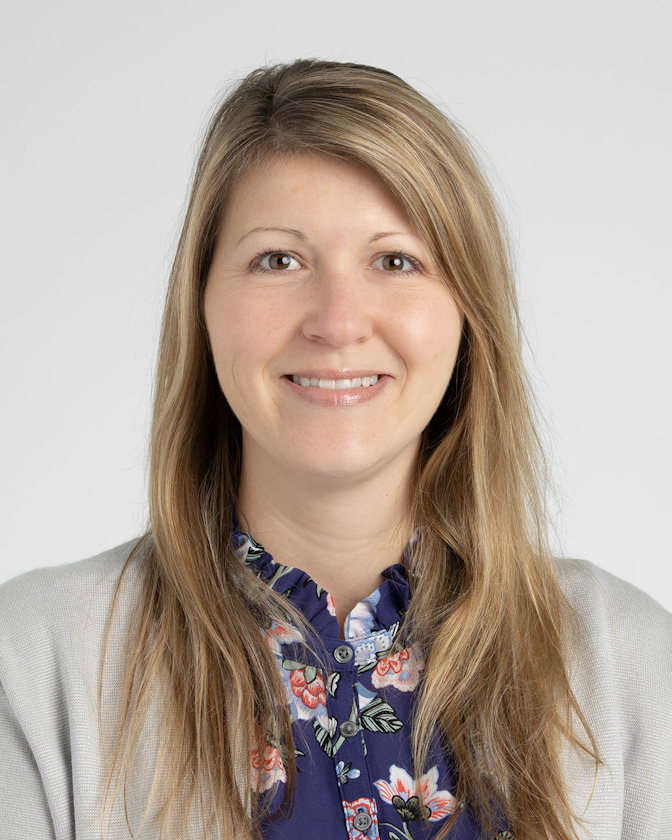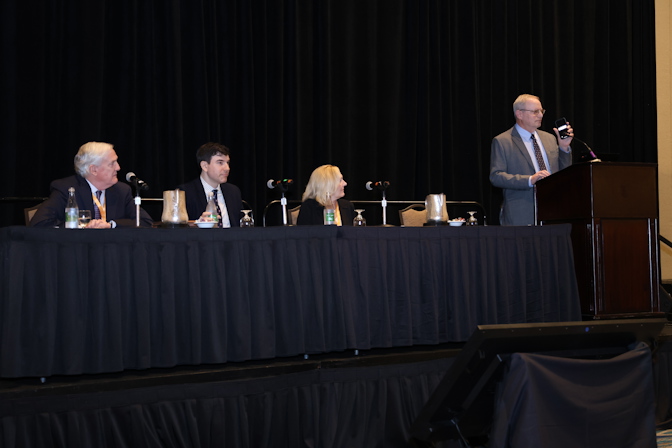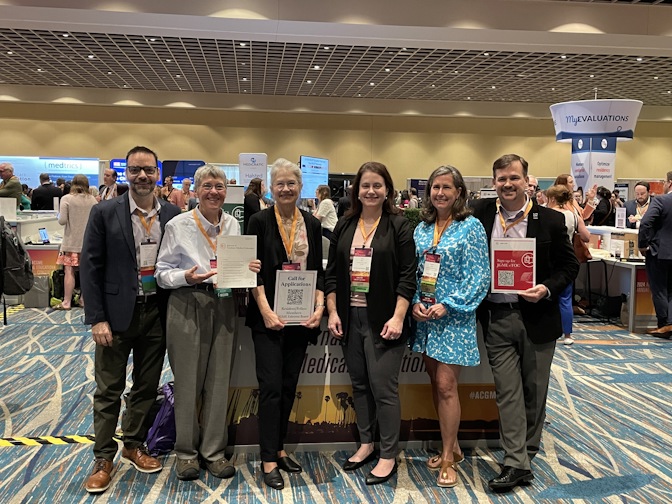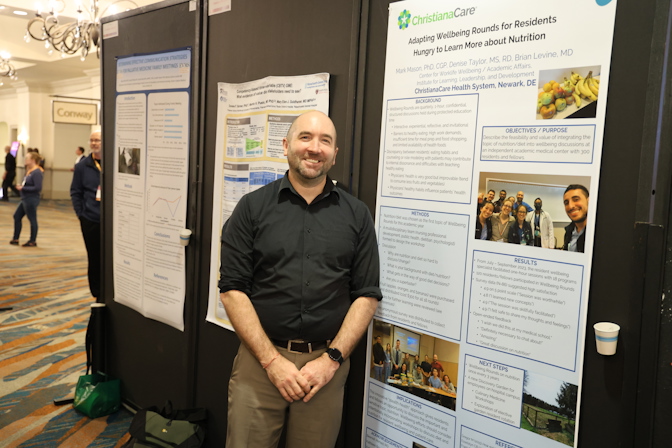Blog
Honoring Excellence: Q and A with Krista Lombardo-Klefos, MBA
A Q and A with 2024 ACGME GME Institutional Coordinator Excellence Awardee Krista Lombardo-Klefos, MBA.

#ACGME2024 Session Summary: The Generative AI Revolution and Innovations and Opportunities in Medical Education
A summary of the Featured Plenary, The Generative AI Revolution: Innovations and Opportunities in Medical Education, from the 2024 ACGME Annual Educational Conference.

Journal Notes: JGME’s #ACGME2024 Recap!
The Journal of Graduate Medical Education team recaps their educational and networking experiences at the 2024 ACGME Annual Educational Conference.

Behind the Poster: An Interview with Mark Mason, PhD, CGP
In the poster, “Adapting Well-Being Rounds to Residents Hungry to Learn More about Nutrition,” Mark Mason, PhD, CGP and his team explore the impact of open, honest conversations about nutrition and diet on learner physicians.

#ACGME2024 Session Summary: Deciphering GME Finances
A summary of the Featured Plenary, Deciphering GME Finances: Navigating the Complexities of Medical Education Funding, from the 2024 ACGME Annual Educational Conference.

Honoring Excellence: Q and A with Maria DeOliveira, EdD
Q and A with 2024 ACGME Debra L. Dooley GME Program Coordinator Excellence Awardee Maria DeOliveira, EdD.

The ACGME and Global Health: Insights from Abu Dhabi on the Local View of Glocalization
ACGME Global Services spoke with Sawsan Abdel-Razig, MD, MEHP about the concept of the local view of "glocalization" in Abu Dhabi.

Honoring Excellence: Q and A with Gopal Krishna Yadavalli, MD, FACP
Q and A with 2024 Courage to Teach Awardee Gopal Krishna Yadavalli, MD, FACP.

Honoring Excellence: Q and A with Emily Murphy, MD
A Q and A with the 2024-2026 recipient of the New York Academy of Medicine/ACGME Jeremiah A. Barondess Fellowship in the Clinical Transaction, Dr. Emily Murphy.

Honoring Excellence: Q and A with Michael Malone, MD, FAAFP
A Q and A with 2024 ACGME Courage to Teach Awardee Michael Malone, MD, FAAFP.

